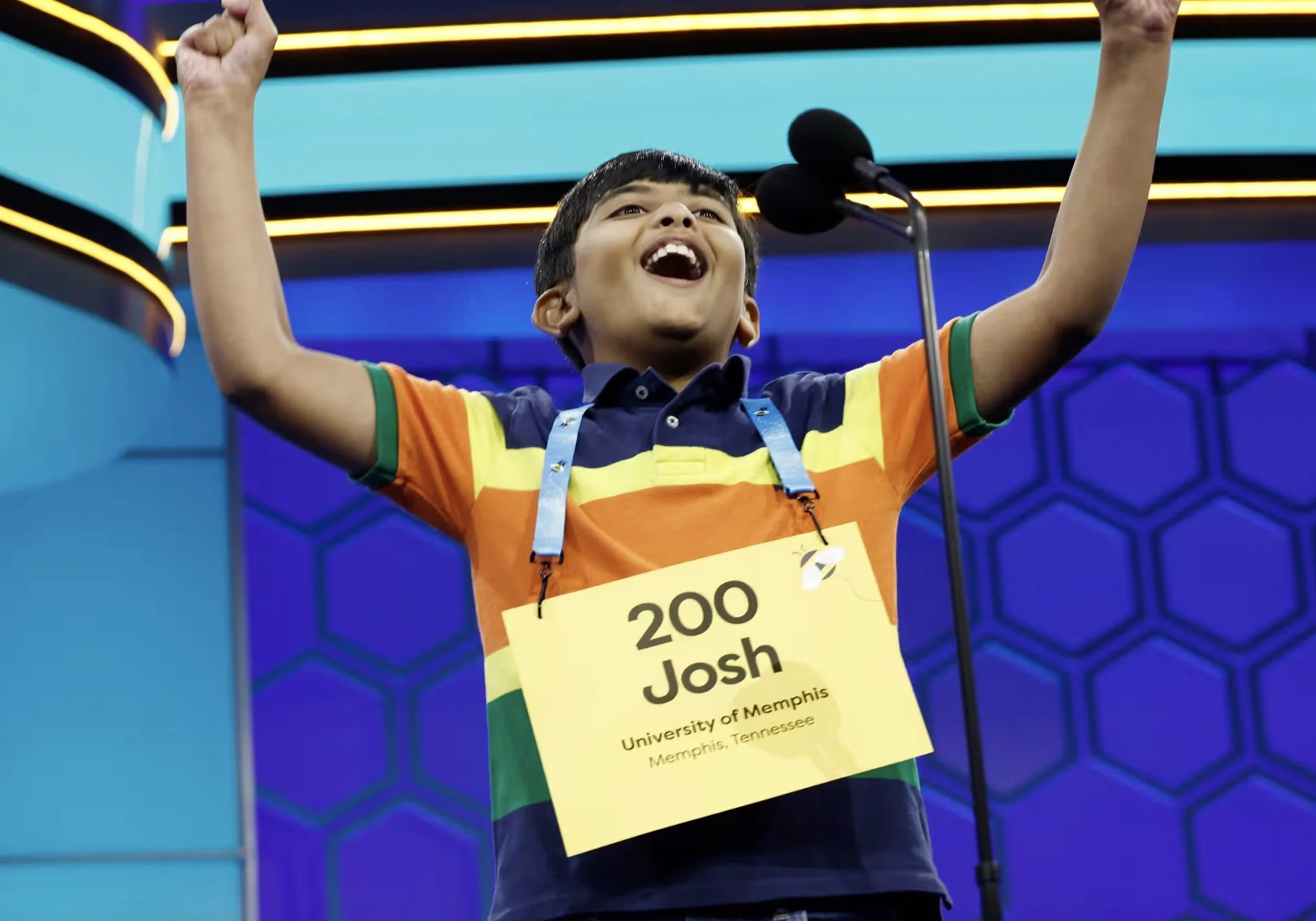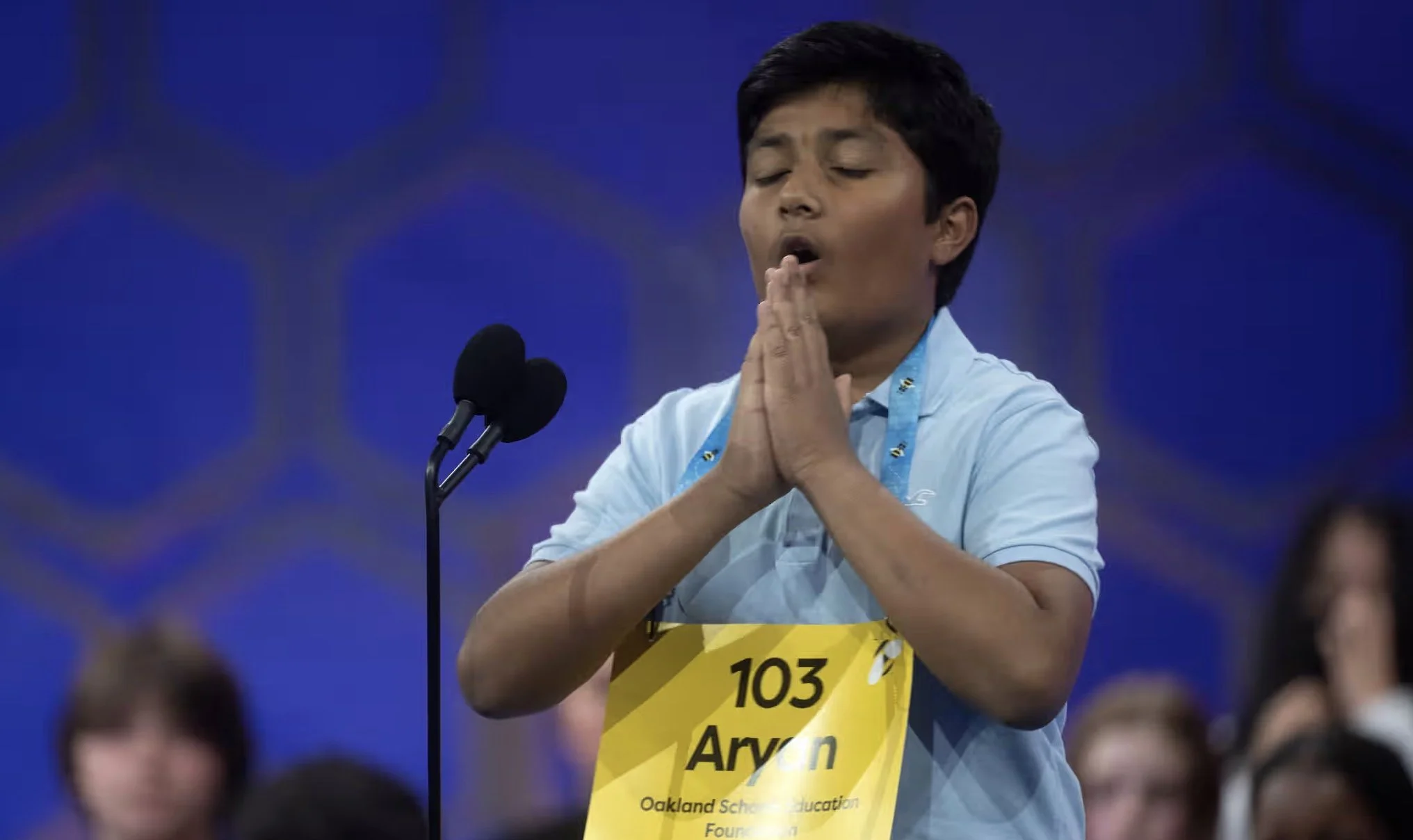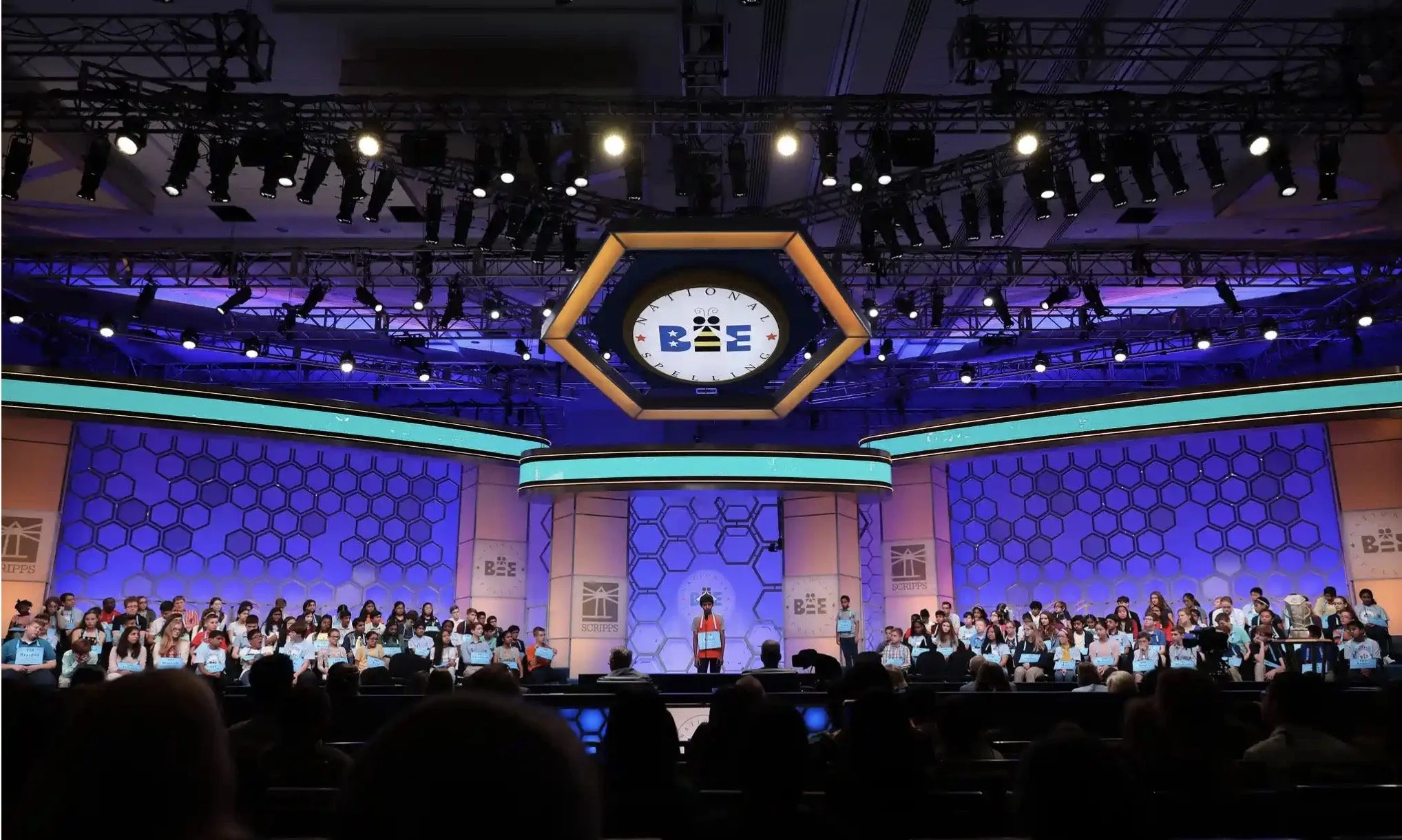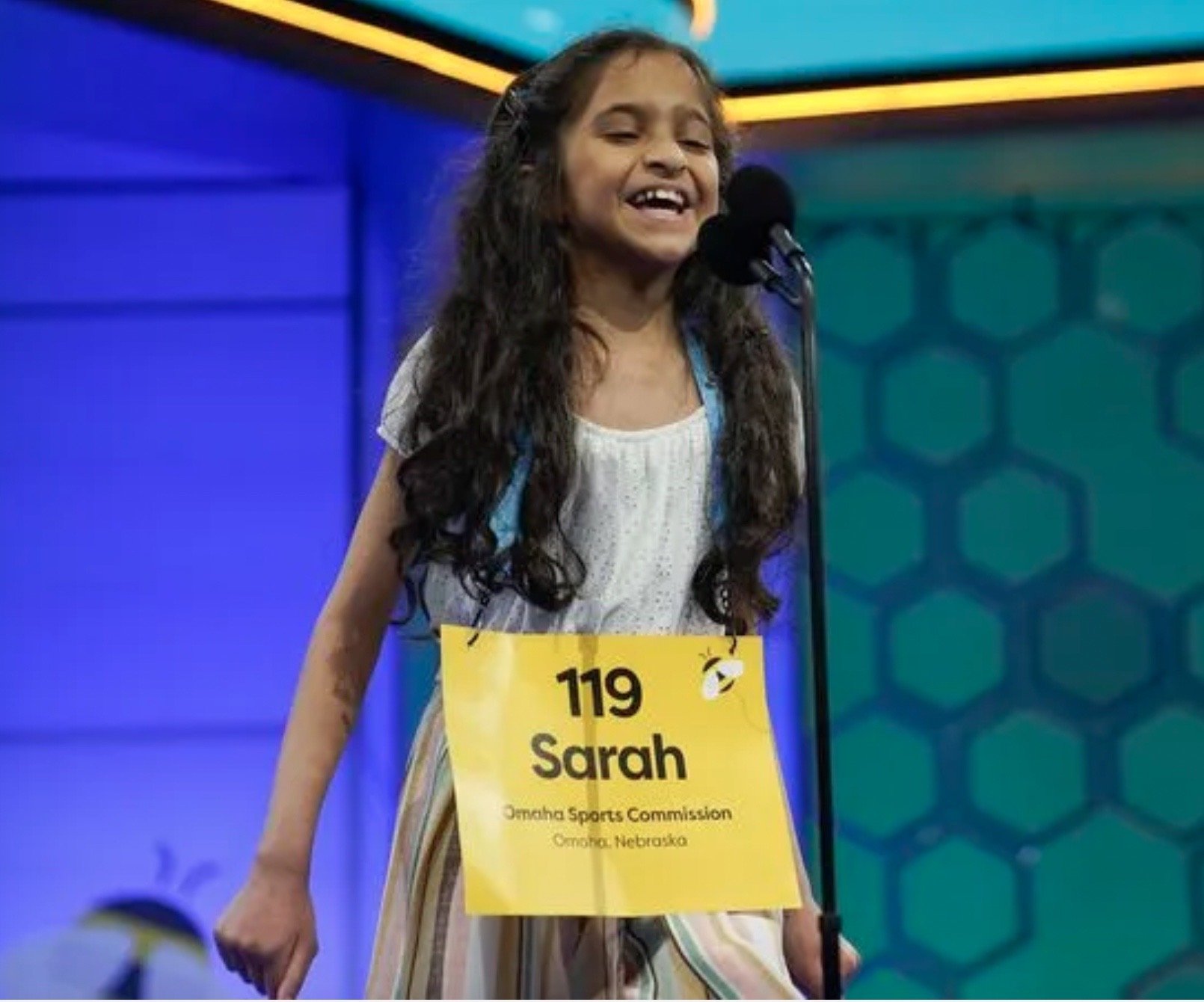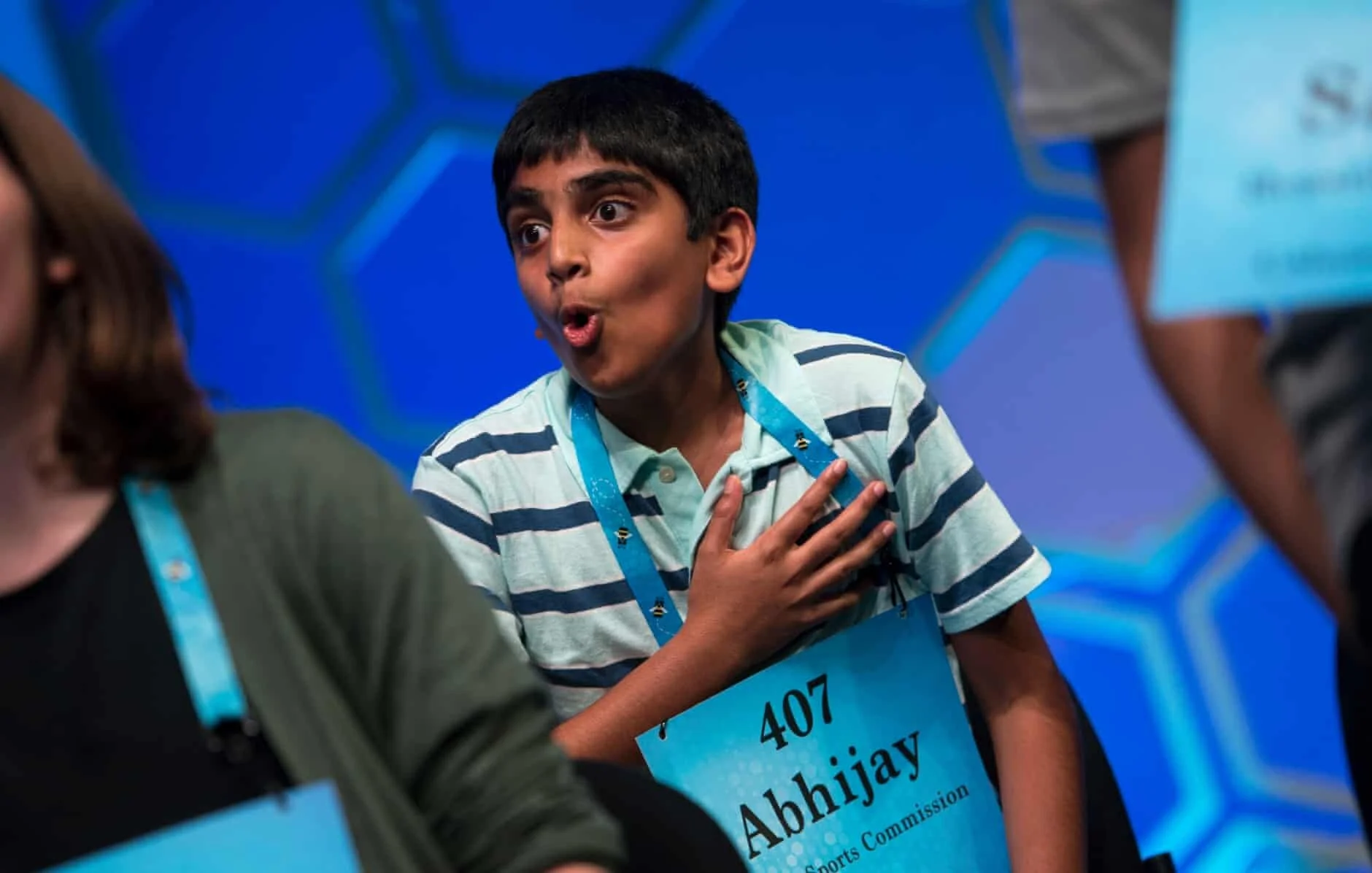Adeel Hassan, New York Times, May 29, 2025.
“Scott Remer will have a unique vantage point during the final round of the Scripps National Spelling Bee on Thursday: He has coached four of the nine finalists and was a finalist himself in 2008. ‘It’s stressful every year,’ he said in an interview on Thursday morning. Mr. Remer, 31, has worked as a spelling bee coach for 14 years and has written four textbooks on the subject. Twenty-seven of his current students and eight former students competed in Maryland this week, representing nearly 15 percent of all competitors. Of the finalists, two are his current students: the 2024 runner-up, Faizan Zaki, 13; and Oliver Halkett, 13. His former students, Aishwarya Kallakuri, 14, and Sarvadnya Kadam, 14, are also competing in the finals.”
Read More

